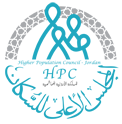

The Higher Population Council and the National Council for Family Affairs, held today, Wednesday, with technicaland financial support from the United Nations Economic and Social Commission for Western Asia (ESCWA), a capacity-building workshop on integrating elderly issues into the policy-making process in Jordan, with the participation of relevant representatives from various ministries, governmental and non-governmental bodies. Relevant government, and the National Committee for the elderly.
The two-day workshop aims to build the capacities of policy makers and various stakeholders in various government sectors to integrate the issues and priorities of older persons into the policy-making process, in addition to raising awareness about the rights of older persons in global frameworks. The workshop focuses on interactive exercises to raise the participants’ ability to Policy analysis and development from the perspective of the elderly.
The Secretary-General of the Higher Population Council, Dr. Abla Amawi, stressed that this workshop comes due to the belief of the Higher Population Council in the importance of partnerships with all public and private sectors, civil society organizations and international institutions to support population and development policies and issues, including those related to the elderly category.
She indicated that, according to the estimates of the Department of Statistics for the year 2020, the number of elderly people in Jordan reached 588,109 people (299,450 males, 288,659 females), constituting (5.4 percent) of the total population of the Kingdom, while the number of elderly Jordanians reached (459,286). (231,428 males, 227,858 females) and constitute (6.1%) of the total Jordanian population. National projections issued by the Department of Statistics indicate that the elderly in Jordan (60 years and over) will rise, according to the medium scenario, to (929114) people. In 2030, and to (1619076) people in 2050, with a percentage of (7.7%) in 2030, and (13.5%) in 2050 of the total population of the Kingdom.
Amawi stressed that Jordan’s reached to this percentage in 2050 is an indication of the beginning of Jordan’s entry into the stage of aging societies 30 years after the beginning of the second centenary for Jordan, and hence the Higher Population Council’s emphasis on the importance of preparing and institutionalizing social protection for this segment and finding mechanisms for employing this segment in Another demographic opportunity based on investment in the elderly segment.
Amawi pointed out that the Higher Population Council, which is the national reference for population issues, closely follows demographic changes in Jordan, and continues to evaluate the effects of population policies and programs on the age structure of the population and demographic characteristics, indicating that Jordan has witnessed a significant increase in the average life expectancy at birth since 1961, according to Statistical reports issued by the Department of Statistics, indicating that the number of years added to life expectancy reached 19.3 years (from 54 years in 1961 to 73.3 years in 2019), and this increase was caused by the remarkable improvement in the living and health conditions of the population, which reflected positively on the chances of survival. This requires reconsidering the definition of the elderly nationally, in order to ensure that these additional years are employed as production years in national legislation, strategies and policies.
,
In turn of the Secretary-General of the National Council for Family Affairs, Dr. Muhammad Fakhri Miqdadi, stressed the importance of this workshop in institutionalizing the issues of the elderly in Jordan, and the importance of shedding light on their issues to become a national priority, pointing to the work of the National Council for Family Affairs to prepare the national strategy and plan for the elderly. The executive committee for the years (2018-2022), which forms the basis for planning to integrate the issues of older persons into national policies through the axes and priorities it includes.
Miqdadi said: that the council is working to follow up the implementation of the activities of the executive plan with the National Committee to follow up on the implementation of the national strategy for the elderly, which was formed by a decision of the prime minister, whose members represent all concerned national institutions.
He referred to Jordan's achievements with regard to legislation related to the elderly, as the Jordanian constitution stipulates in the second chapter on the rights and duties of Jordanians, and in Article 6, clause 5, to protect the rights of the elderly and protect them from abuse and exploitation, also include that most Jordanian legislation, such as the Personal Status Law, the Penal Code, the Social Security Law and other legislation, included in its articles some texts on the issue of protecting the rights of the elderly. In addition, the demands of the national strategy for the elderly came in the importance of having a law protecting the rights of the elderly to include all rights related to them. .
.
For her part, Dr. Sarah Salman, Regional Adviser for Population Affairs at the United Nations Economic and Social Commission for Western Asia (ESCWA), indicated that the topic of the workshop is gaining additional importance in light of demographic shifts that will lead to an increase in the numbers and proportions of the elderly in the Arab region, where it is expected that the number of those above The 60-year-old will reach 100 million by the year 2050, indicating that in Jordan, the process of transition towards old age (the stage in which the proportion of the elderly rises from 7 to 14% of the population) is expected to begin in the year 2035, and it will be a very fast process that will last about two decades.
She added that this rapid pace of demographic shifts imposes on Arab countries an urgent policy response to ensure aging with dignity for the elderly today and in the near future, noting that most Arab countries face great pressures to meet the needs of their young societies while preparing for the aging phase of the population, and the Corona pandemic came to increase these challenges and it imposes additional obstacles.







